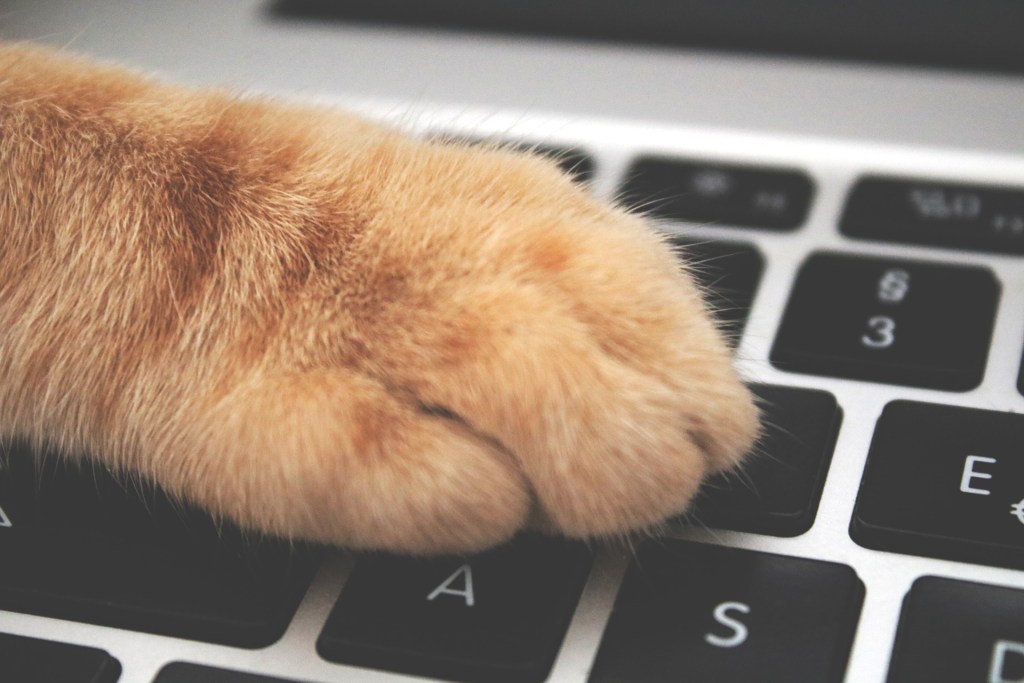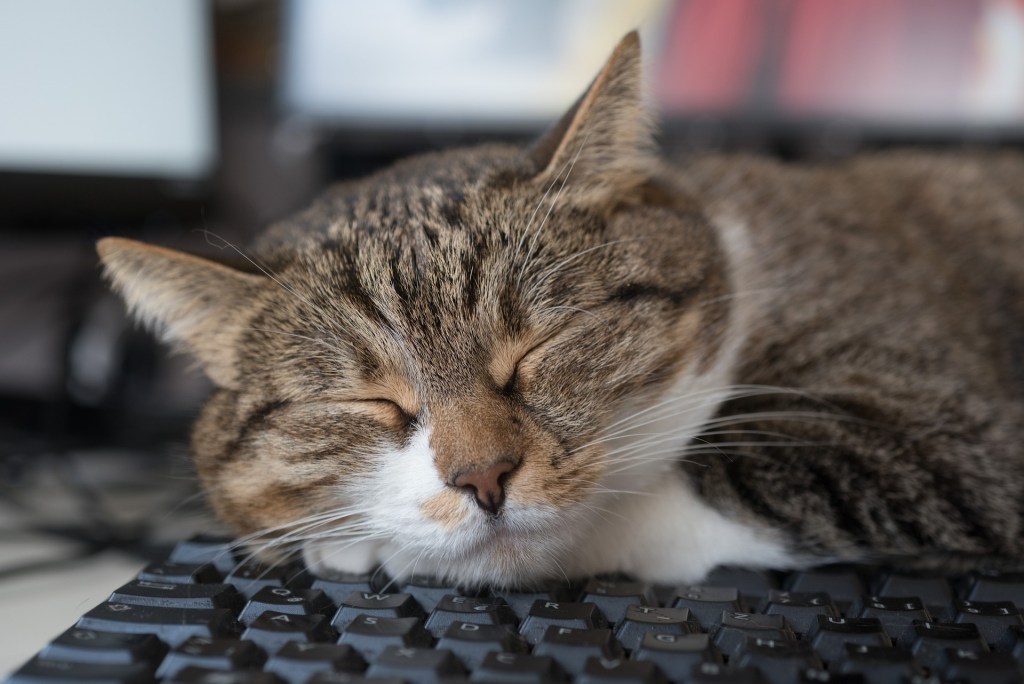If you find yourself frequently moving your cat off your keyboard while you’re using your computer, you’re far from alone. Keyboards seem to be like magnets to cats, and a cat sitting on keyboard and laptop surfaces is all too common. While it can be cute to see the first few times, this habit can get tiring, especially if you’re trying to get some work done. If you’re wondering, “Why does my cat sit on my keyboard?” the good news is that there’s a reason behind your cat’s behavior. Once you understand why your cat is so attracted to your keyboard, you can take some steps to help convince him that he really doesn’t need to climb onto your computer while you’re working.

Finding a cozy spot
Your cat might be attracted to your computer because of its warmth. This is particularly true of laptops, which often vent heat out of their sides and can get toasty during use. Your laptop is also right in your lap, a prime spot for a cozy catnap.
Once your cat realizes your keyboard is a warm place to sleep, climbing onto it can become a habit. He might see your keyboard as his new bed, whether or not you happen to be using it at the time.
Getting attention
It’s also possible that your cat has figured out that when he sits on your keyboard, he gets what he wants — attention. If you’ve been working intently, you may have overlooked him walking by, rubbing against your leg, or looking up longingly at you from the floor. Getting on your keyboard is sure to get a reaction, even if it might not be the positive affection he’s after.
When you’re working on a laptop, it’s usually in your lap. Your cat might just want to cuddle, and stepping onto your computer is a good way to make you pick him up and to quickly capture your attention. You might notice that your cat pushes his head under your hands to get at your keyboard, which could be an effort to get you to pet him.
No matter how your cat manages to get onto your keyboard, it’s what you do in response that delivers him his reward. You’re sure to react, whether you laugh at him, pet him, or even pick him up and move him. In doing so, you’ve given him attention and he’s managed to get you away from your work, even if just for a moment. Don’t be surprised if he starts doing this again and again as a result.

How to break the habit
While your kitty may just be looking for attention, having him climb all over your keyboard in the middle of a workday is far from ideal, and your cat can also activate commands and settings on your computer that you then have to figure out how to undo. Cat hair can also work its way down into your keyboard or into your laptop, which can lead to pricey repairs. It’s best to keep your cat off the keyboard entirely.
That’s easier said than done, but you’ve got ways to encourage your cat to choose more appropriate spots for settling down:
- Try placing a tempting box or cozy cat bed next to your computer, giving your cat an alternative space that you can place him into when he tries to settle down on your keyboard. Add some catnip to make the spot more enticing, or turn on a desk lamp to heat up that spot, so it’s irresistible to your cat.
- If your cat is actively seeking out your attention, then try to build plenty of breaks into your workday or your general computer use. Set yourself a timer and make sure to stand up and take a break every half-hour. During that time, play and engage with your cat. The more exercise and entertainment you can give him, the greater the chances that he’ll be happy to settle down next to you instead of crawling over you and your keyboard.
It’s all too easy to get distracted while you’re on a computer, and you might be ignoring your cat’s signals more than you think you are. Your cat’s climbing on your keyboard could be a bid for your attention, or he might just see it as a prime sleeping spot. While it’s not a behavior that you want to run unchecked, there are plenty of ways you can help ensure your cat’s needs are met. With a little time and effort, you and your cat can successfully and peacefully spend time together, even while you’re working on your computer.
Editors' Recommendations
- Wondering why cats chirp? Fascinating reasons why your cat chirps at birds (and you)
- How to cat-proof your balcony before the unthinkable happens
- There’s a totally normal reason cats throw up after eating grass – here’s why
- When can kittens leave their mom? Don’t separate them too early
- When do kittens’ eyes change colors? The answer is so cool – here’s what to know




